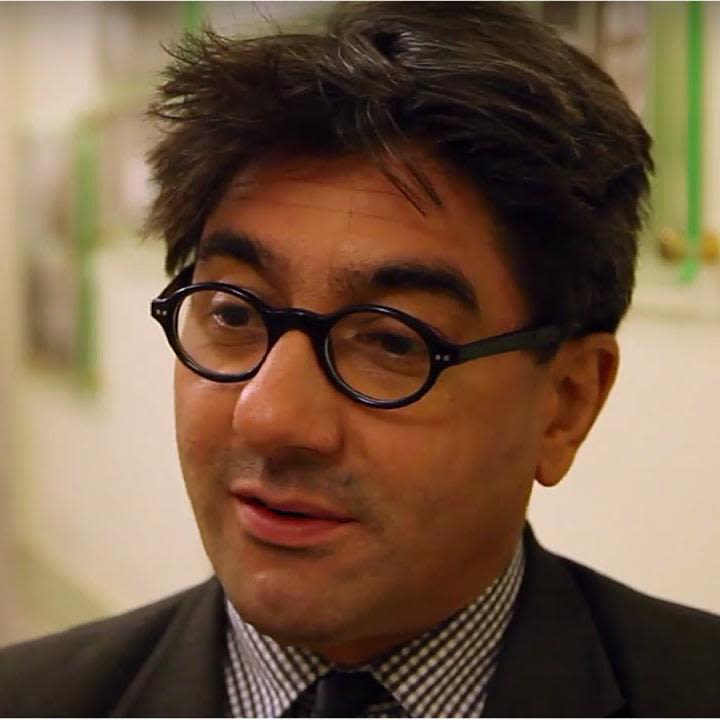
Contact information
robin.choudhury@cardiov.ox.ac.uk
+44 (0)1865 234664
Miss Eunice Berry
eunice.berry@cardiov.ox.ac.uk
Colleges
Robin Choudhury
MA DM FRCP
Professor of Cardiovascular Medicine
- Honorary Consultant Cardiologist
- Fellow in Biomedical Sciences, Balliol
Integrative Physiology (Systems Biology)
Overview
This translational science laboratory aims to understand how cells of the innate immune system are involved in processes of tissue homeostasis, injury and repair.
Areas of particular interest focus around: (1) understanding the role of monocytes, macrophages and neutrophils in acute myocardial infarction; myocardial regeneration vs repair and in atherosclerosis and (2) how these cells are 'programmed' e.g. by extracellular vesicles and through by genetic / epigenetic and metabolic mechanisms.
Robin Choudhury qualified in medicine at the University of Oxford with postgraduate training in London (Royal Brompton & Hammersmith) and at Mount Sinai School of Medicine, New York. He is currently Professor of Cardiovascular Medicine at the University of Oxford; Consultant Cardiologist to the John Radcliffe Hospital and Research Fellow in Biomedical Sciences at Balliol.
He is co-PI of of the NovoNordisk Foundation supported Metabolite-related inflammation and disease (MeRIAD) consortium. He serves on the Editorial Board of the Journal of the American Journal of Cardiology (Section Editor, Clinical Cardiology).
Key publications
-
Inflammatory processes in cardiovascular disease: a route to targeted therapies.
Journal article
Ruparelia N. et al, (2017), Nat Rev Cardiol, 14, 133 - 144
-
Arterial Effects of Canakinumab in Patients With Atherosclerosis and Type 2 Diabetes or Glucose Intolerance.
Journal article
Choudhury RP. et al, (2016), J Am Coll Cardiol, 68, 1769 - 1780
-
Differential Gene Expression in Macrophages From Human Atherosclerotic Plaques Shows Convergence on Pathways Implicated by Genome-Wide Association Study Risk Variants.
Journal article
Chai JT. et al, (2018), Arterioscler Thromb Vasc Biol, 38, 2718 - 2730
-
Heart regeneration and repair after myocardial infarction: translational opportunities for novel therapeutics.
Journal article
Cahill TJ. et al, (2017), Nat Rev Drug Discov, 16, 699 - 717
-
Macrophages directly contribute collagen to scar formation during zebrafish heart regeneration and mouse heart repair.
Journal article
Simões FC. et al, (2020), Nat Commun, 11
-
Acute myocardial infarction activates distinct inflammation and proliferation pathways in circulating monocytes, prior to recruitment, and identified through conserved transcriptional responses in mice and humans.
Journal article
Ruparelia N. et al, (2015), Eur Heart J, 36, 1923 - 1934
-
Endothelium-derived extracellular vesicles promote splenic monocyte mobilization in myocardial infarction.
Journal article
Akbar N. et al, (2017), JCI Insight, 2
-
Diabetes and Metabolic Drivers of Trained Immunity: New Therapeutic Targets Beyond Glucose.
Journal article
Choudhury RP. et al, (2021), Arterioscler Thromb Vasc Biol
-
Hyperglycaemia Induces Trained Immunity in Macrophages and Their Precursors and Promotes Atherosclerosis.
Journal article
Edgar L. et al, (2021), Circulation
Recent publications
-
Multi-organ single-cell RNA sequencing in mice reveals early hyperglycemia responses that converge on fibroblast dysregulation.
Journal article
Braithwaite AT. et al, (2024), FASEB journal : official publication of the Federation of American Societies for Experimental Biology, 38
-
Trained immunity in diabetes and hyperlipidemia: Emerging opportunities to target cardiovascular complications and design new therapies.
Journal article
Robinson KA. et al, (2023), FASEB J, 37
-
Multi-organ single-cell RNA-sequencing reveals early hyperglycaemia responses that converge on fibroblast dysregulation
Preprint
Braithwaite AT. et al, (2023)
-
Prospects for Precision Medicine in Acute Myocardial Infarction: Patient-Level Insights into Myocardial Injury and Repair.
Journal article
Alkhalil M. et al, (2023), J Clin Med, 12


